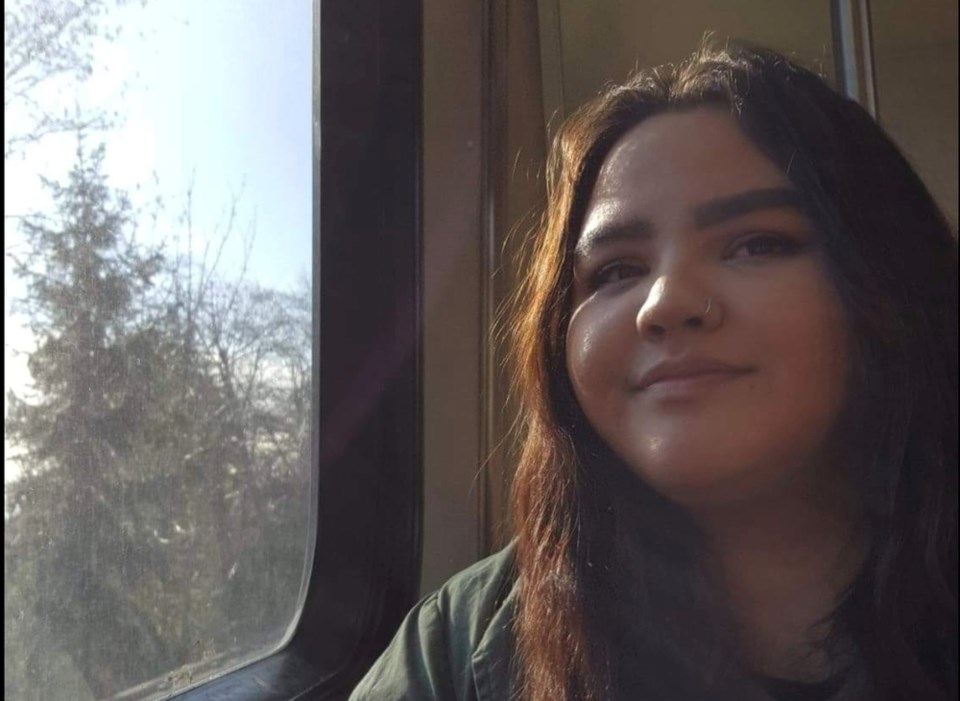Jodi Dekker had big plans before the virus hit.
Paying rent and buying groceries were always tight. She was a student, after all, enrolled in the Indigenous pathways program at Coquitlam's Douglas College.
When the 20-year-old wasn’t studying, she was at work, serving Port Coquitlam shoppers in the deli at Save-On-Foods.
It was supposed to be temporary.
“I had plans to have my practicum at this really nice place,” she said.
Dekker hails from the Opaskwayak Cree Nation but grew up in the Lower Mainland, so she was excited when she was accepted for a practicum slot at The Maples Adolescent Treatment Centre at the Riverview Hospital, which incorporates an Indigenous healing house to treat young people experiencing significant emotional, behavioural or mental health challenges.
“I lost my chance there. It’s heartbreaking. Maybe it could have put me on a different path,” she said. “That option is gone because there’s not enough space inside for that many people at once.”
Dekker is not alone. As the pandemic peaked in B.C., first in the spring and again now, young people have been increasingly blamed for transmitting COVID-19.
And while the coronavirus has proved deadly for older people around the world, younger British Columbians have suffered in their own way — careers halted, education put on hold and social life crushed at a time when many are just discovering who they are and where they want to go.
“They experienced the greatest job loss, greatest financial loss, and outside of long-term care, the greatest sense of self-isolation,” said Scott Lear, a professor in the Health Sciences department at Simon Fraser University, who has been researching how populations respond to public health measures since the COVID-19 pandemic began.
In a series of recent focus groups, Lear found most of the young participants felt sidelined in the conversation around the current public health crisis.
“We know that most young adults aren’t going to parties and aren’t disobeying public health orders,” he said. “They are feeling a lot of the consequences and they feel like they’re being blamed and no one is listening to them.”
Or as Dekker put it, “I feel like I’ve been taken as a joke. I see older people always bashing our generation. But we’ve been taking it seriously. It is our future in our hands.”
For the important few who aren’t following provincial health officer Dr. Bonnie Henry’s orders, repeating them from a pulpit in Victoria can also turn people off quickly, said Lear. Instead, warnings should be wrapped in empathy — like last summer when Dr. Henry acknowledged she missed travel as much as the rest of British Columbians.
Advertisements seeking to draw attention through humour, like those recently launched in Alberta featuring a creepy ‘Uncle COVID,’ can work in the short term. But they also fail to show the consequences of transmission, on the one hand, and feed into stereotypes that all young people have spent the pandemic at house parties, on the other, said Lear.
“I’m not going to say that everyone I know is a goddess. There are people who are out there ignoring the rules, and who look past it as a joke,” said Dekker.
“But as a generation, we’ve been careful. All my friends are at home playing video games. I’m on that train too when I'm not studying or at work — I’m at home playing animal crossing on my Switch.”
So far, her first year at Douglas College has been a strange mix of ups and downs. Campus life is non-existent and time with professors is hard to come by.
“I felt like I had to do most of the teaching myself,” she said. “We don’t have lectures most of the time now.”
Lately, Dekker has struggled to pick up shifts at the grocery store because she sits near the bottom of the seniority ladder.
When she is working, it’s been both a source of comfort and a way to pay the bills.
“I feel pretty essential. I always get thanked for helping out,” she said. “It’s been really helpful with rent and keeping food on the table.”
And this week, she was one of 430 students in need across the province who received roughly $1,200 to help them pay their way through college or university this year.
“I’m going to take this money and just stay afloat, keep going during this time,” she said.
“We’re are all just trying to navigate this moment.”
HOW TO HELP OTHER YOUNGER PEOPLE THROUGH THE PANDEMIC
SFU professor Scott Lear’s ongoing research into how to communicate with young people during the pandemic has reached a public competition stage.
Lear is calling on British Columbians to create COVID-19 health and safety messages directed at young people — whether videos, pictures or memes — and shared on Instagram under the hashtag #HomeforHolidaysBC
Positive messages that tell a story, make you laugh and are delivered by someone that can relate to the target audience are best.
The most viral messages will be reposted to the account @HomeforHolidaysBC and entered into the competition, with gift cards awarded to the top contenders.
Lear said: “After continually in the summer hearing about all the young adults on the beach partying, I was thinking, 'Why don’t you just talk to these people instead of standing at a podium in Victoria saying the same thing?”



